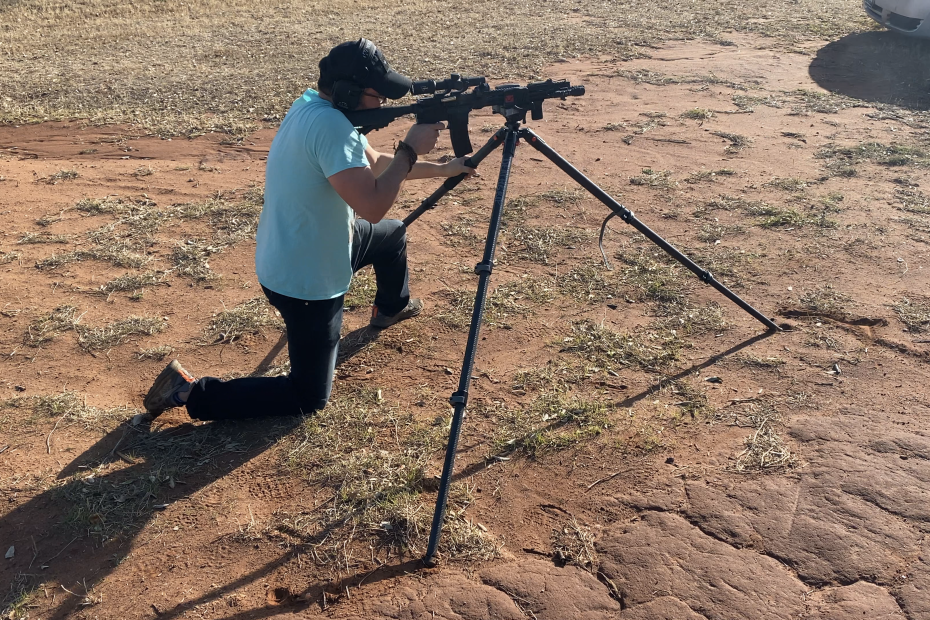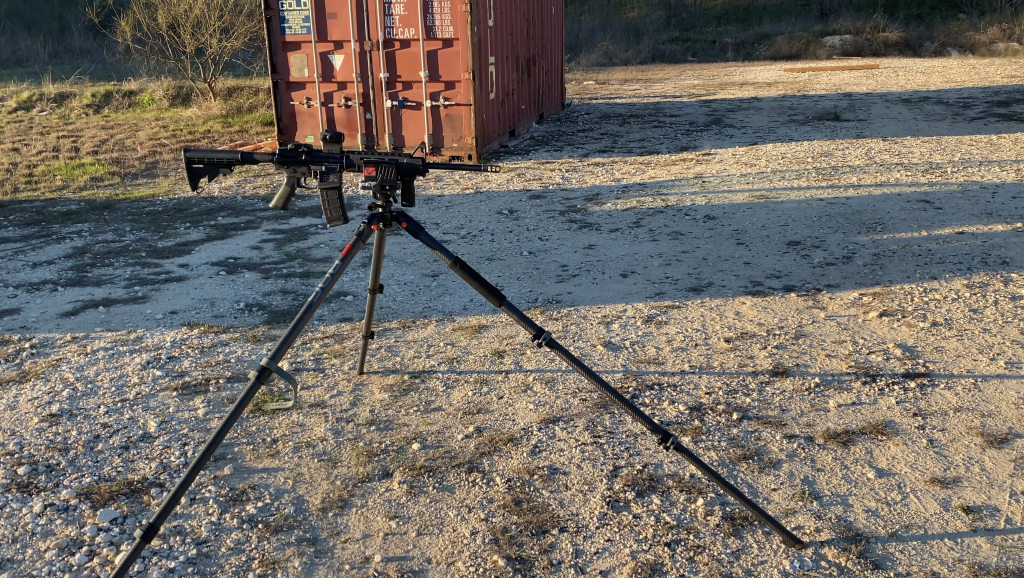
Out of the Box
Shooting Tripods come in many configurations and can become overwhelming to new shooters. You have high-end, purpose built tripods like the RRS ($975) and Crux Ordinance ($795) which cost about as much as a factory rifle for just the tripod legs. Not to mention you have to shell out another $250-$600 for a ball-head mount to make the tripod useful.
There are many high-end options catering to the always-serious-PRS world and even some affordable options for the often budget-conscious hunting world. The BogPod Death Grip succeeds in being an economical option to those who may not need rigid stability coming in at around $200 for the carbon fiber model and $140 for the heavier, aluminum model.
This is not to say that the Death Grip offers second tier stability. On the contrary I’ve been delighted by the 3 months of field testing I’ve done and definitely recommend it within certain parameters.
Out of the box, the carbon fiber Death Grip weighs 7.5 pounds with the ability to adjust height from 7″ to 59″. I was a little surprised that the carbon fiber unit still came in at 7.5 pounds but I don’t carry a lot when I’m hog or predator hunting so it’s a compromise I’m willing to make.
The Death Gip’s legs are each adjustable to 20, 45, and 85 degree angles making it simple to modify the tripod’s alignment to your terrain.

Death Grip Rubber Feet 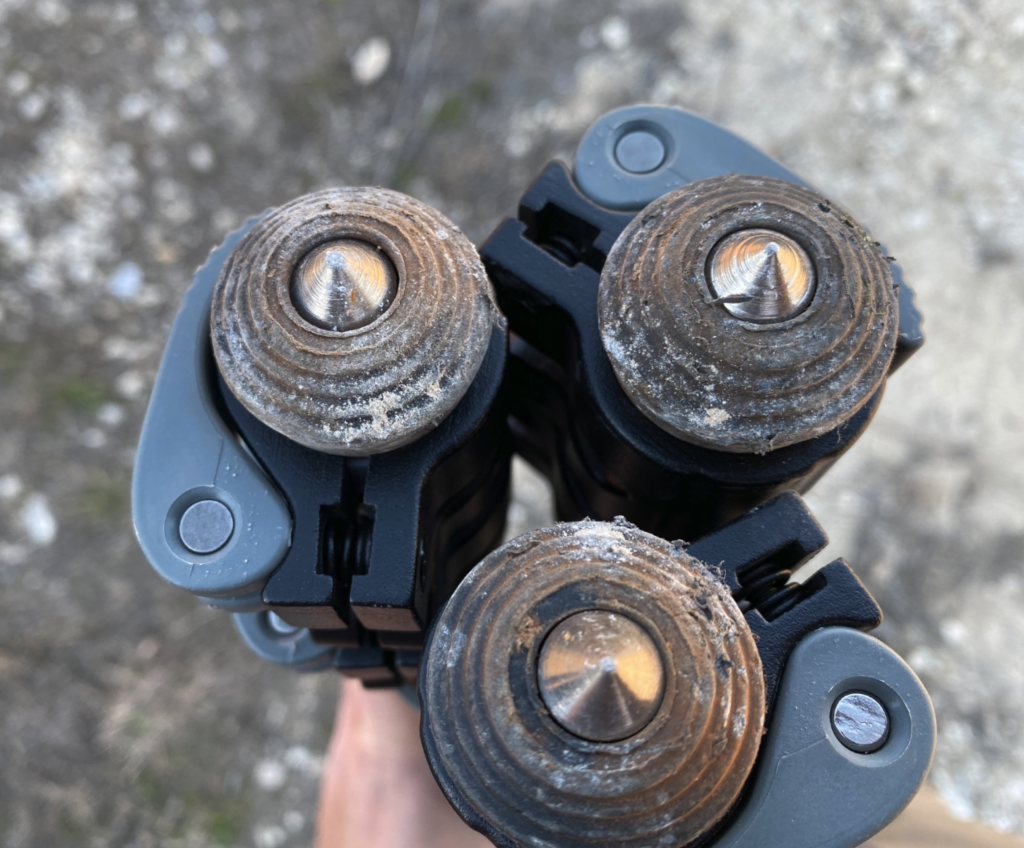
Pointy Bois
A Hog Hunter’s Intended Use
When picking a shooting tripod it’s important to understand what your intended use case is. For precision shooting, you might be willing to sacrifice using a heavier unit if it means rock-solid stability. A lot of us hunters are always looking for ways to shave off pounds and ounces from our field kit and we’re often willing to sacrifice some stability for a little less weight. Unfortunately there’s no option that does both while still being in the same price tier as the Death Grip.
While hog and predator hunting, I’m often bouncing between multiple pastures and need something that’s relatively lightweight and stable. It doesn’t need to be perfect at either of these but ideally balanced. I went with the more expensive, carbon fiber model because I’ve had bad experiences with aluminum bipods and tripods getting banged up in the field and no longer collapsing into their legs.
Field Testing
I’ve taken the Death Grip on almost 20 different hunts this winter. It’s held up great and never caused any problems. The clamp is easy to adjust in total darkness and the clamp has always been rigid and tough without damaging an AR-15 or bolt-action hunting rifle.
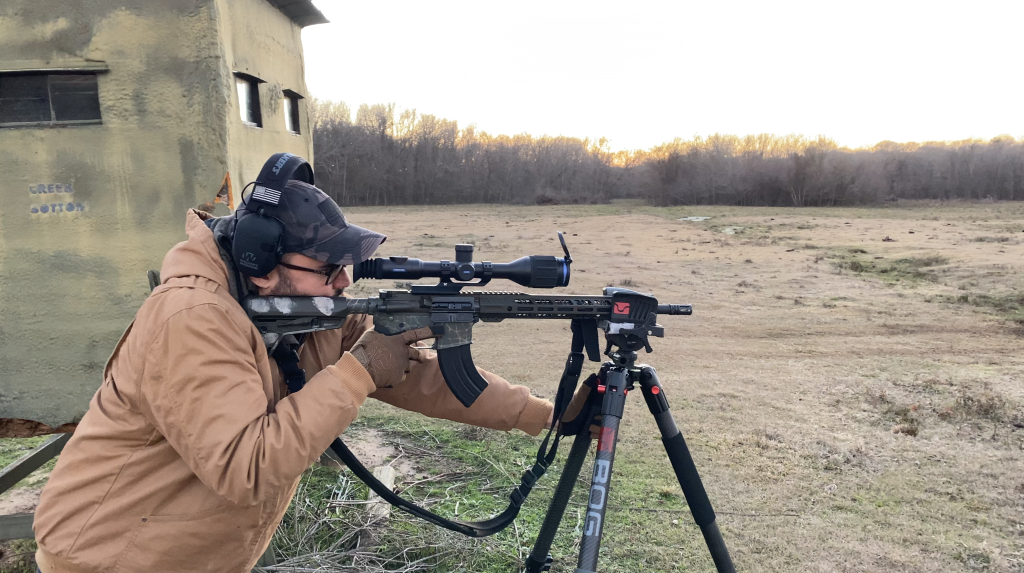
I’ll usually spend 2-3 hours in a field before packing up to scan other areas. When traversing a pasture, I’ll usually pull the legs in tight and balance the ball-head and tripod legs over my shoulder as I make the trek to a different stand. When I carry the tripod in this configuration it saves time and reduces noise when I arrive at my next stand. Carrying the Death Grip like this helps spread the weight more evenly.

Since October 2020, I’ve used the Death Grip on every hog and predator hunt I’ve gone on. I’ve managed to kill over 20 hogs, many of which were at ranges I wouldn’t have been able to shoot without the added stability provided by the Death Grip.
Field Wear
The Death Grip has held up well to my infamous abuse of gear in the field though I have noticed some wear at a few different places.
First I’ve seen some premature wear to the high-density foam inserts on the inside of the clamp though it hasn’t impacted performance one bit. This is concerning and I will continue to keep my eyes on this as I continue to use this on future hunts.
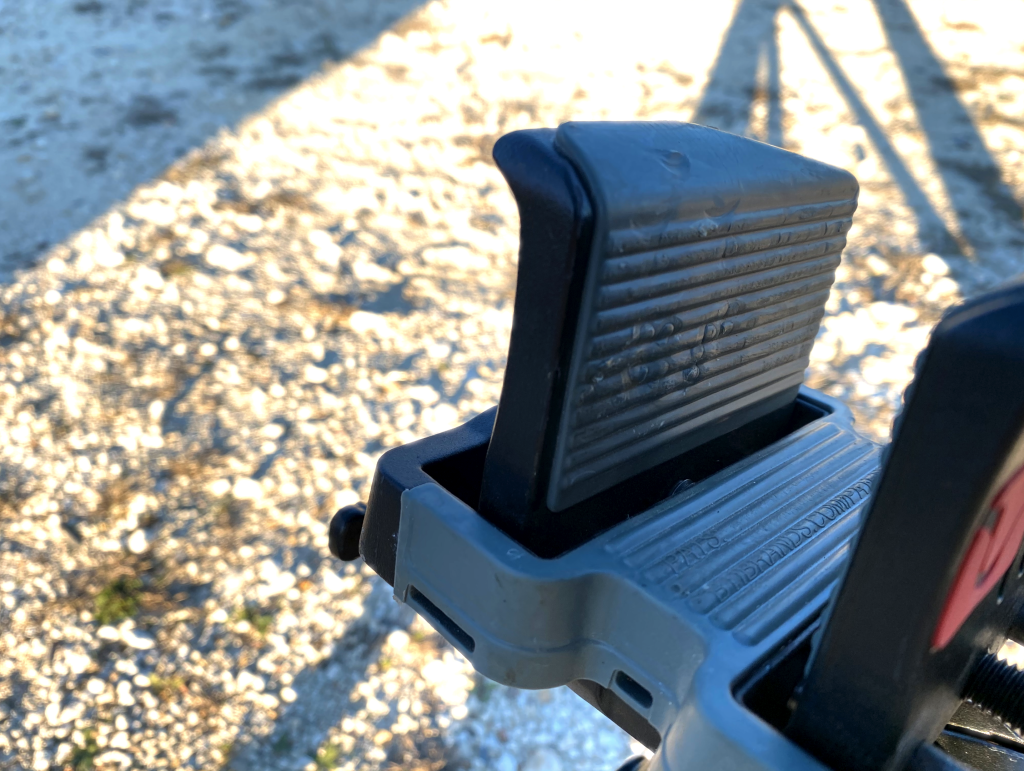
Angle 1: Wear to the High Density Foam 
Angle 2: Wear to the High Density Foam 
One pin on my ball-head clamp came loose
Second, one of the pins supporting the ball-head clamp has come loose. I haven’t spent a lot of time trying to fix this, I just slapped some Duct tape to secure the loose pin in place but it did happen pretty early on after my first hunt using the tripod. In BogPog’s defense, I submitted a ticket to their customer support and they were incredibly quick to respond and I’m hoping to figure out how to fix this (likely user-error).
Final Thoughts
I think the Death Grip is best suited towards the hunting world and the entry-level PRS world. While the ball-head mount and clamp is stable, I know the PRS-elites would be less than ecstatic with it. However, if you’re new to PRS, the Death Grip is a completely viable option that will leave you some extra budget to spend on glass and ammo.
For hog hunters, the BogPod Death Grip offers a well balanced tripod that’s durable, stable, and lightweight enough for most night-hunter’s use cases. The Death Grip has become an indispensable addition to my night hunting field kit.
